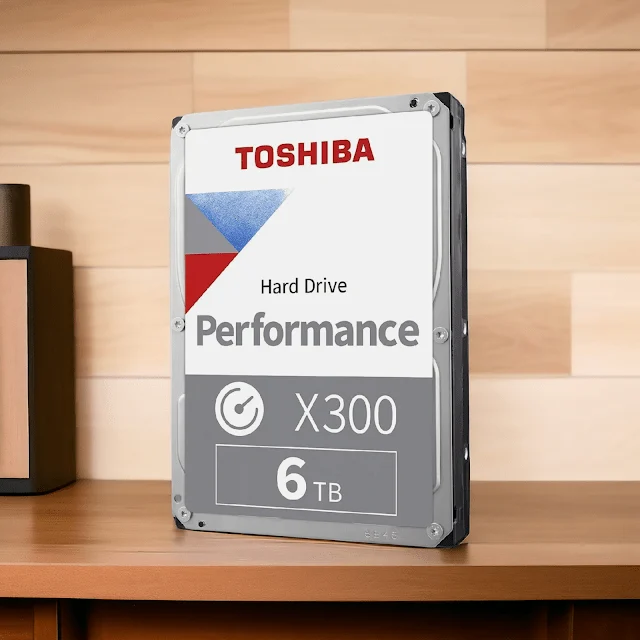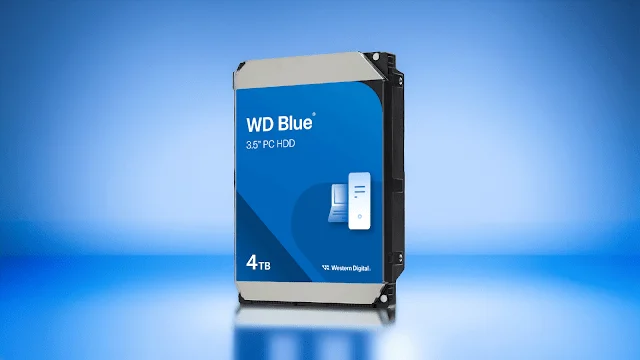
✅ Specifications & Key Features
✅ Mechanical Design & Functionality
✅ Performance & Benchmark Comparison
✅ Strengths & Weaknesses
✅ Best Use Cases & Market Competitors
✅ Maintenance & Longevity Tips
✅ Final Recommendation
🔍 Seagate Exos X18 16TB: Key Specifications
HDD Specifications 💽✨
💾 Capacity: 16TB.
🔌 Interface: SATA 6Gb/s.
🌀 RPM: 7,200 RPM.
📊 Cache: 256MB.
⏳ MTBF: 2.5 million hours.
🛡️ Warranty: 5 years.
⚡ Power Usage: 9.4W (Active) / 5.3W (Idle).
🎈 Helium Sealed: Yes.
✔ Optimized for hyperscale storage – Supports massive RAID configurations and cloud deployments.
✔ Designed for enterprise workloads – Built for high-volume, continuous data processing.
🛠️ Mechanical Design: How the Seagate Exos X18 Works
📀 Platter & Read/Write Mechanism
The Exos X18 consists of multiple magnetic platters enclosed in a helium-sealed chamber. These platters spin at 7,200 RPM, while the actuator arm moves read/write heads across them to access data efficiently.
🔄 Advanced Caching & Low Latency
- 256MB Cache – Reduces lag by storing frequently accessed data.
- Fast Format 512e/4Kn – Enhances compatibility with modern file systems.
- Low Latency (4.16ms) – Ensures rapid response times for enterprise applications.
🧊 Power Efficiency & Cooling
- Helium-Sealed Technology – Lowers friction and heat, enhancing lifespan.
- Optimized Power Balance – Active power consumption 9.4W, idle 5.3W.
✔ Why It Matters: Efficient cooling extends HDD longevity and reduces data center power costs.
⚡ Performance: How Fast Is the Exos X18?
✔ 261MB/s Sequential Transfer Speed – One of the fastest enterprise HDDs available.
✔ Ideal for large-scale data operations – Supports hyperscale storage and big data analytics.
✔ Competes closely with WD Gold & Toshiba MG08 – Offers slightly lower cache than WD Gold, but maintains excellent efficiency.
✅ Strengths & Advantages of the Seagate Exos X18
🚀 1. High-Speed Data Transfers
✔ 261MB/s sustained throughput – Outperforms many competing HDDs.
🔄 2. Optimized for RAID & Cloud Storage
✔ Works seamlessly in RAID 5, RAID 10, and massive storage clusters.
🛠️ 3. Durability & Reliability for 24/7 Operation
✔ 2.5 million-hour MTBF – Industry-leading endurance.
✔ 5-year warranty – Provides long-term security.
🔋 4. Power-Efficient Helium Design
✔ Reduces heat & mechanical wear, extending drive lifespan.
📊 5. Supports Hyperscale & Enterprise Workloads
✔ Ideal for cloud storage, big data processing, and AI-driven analytics.
❌ Weaknesses & Drawbacks
⚡ 1. Higher Power Consumption vs. Consumer HDDs
🔻 9.4W active power draw – More than standard desktop HDDs (~6W).
💡 Solution: Requires efficient cooling systems in enterprise setups.
🛠️ 2. Not Designed for Gaming or Personal Use
🔻 Enterprise HDDs prioritize workloads over gaming performance.
💡 Solution: Gamers should consider WD Black or Toshiba X300 instead.
💰 3. More Expensive Than Standard HDDs
🔻 Priced around $350+, while consumer 16TB HDDs cost ~$250.
💡 Solution: Worth it only for enterprise users needing high reliability.
🆚 Market Competition: How Does It Compare?
🔥 Seagate Exos X18
- ⚡ Speed: 261MB/s
- 💾 Cache: 256MB
- 🏆 Durability: 2.5M MTBF
- 🔋 Power Use: 9.4W
- 🎯 Best For: Hyperscale storage
⚡ WD Gold
- ⚡ Speed: 270MB/s
- 💾 Cache: 512MB
- ✅ Durability: 2.5M MTBF
- 🔋 Power Use: 8.9W
- 🎯 Best For: Balanced enterprise performance
🔥 Toshiba MG08
- ⚡ Speed: 250MB/s
- 💾 Cache: 128MB
- ✅ Durability: 2.0M MTBF
- 🔋 Power Use: 10W
- 🎯 Best For: Cost-conscious enterprise users
Key Highlights:
- ⚡ Fastest Speed: WD Gold (270MB/s)
- 💾 Largest Cache: WD Gold (512MB)
- 🏆 Most Durable: Seagate Exos X18 & WD Gold (2.5M MTBF)
- 🔋 Most Power Efficient: WD Gold (8.9W)
- 💰 Best Budget Option: Toshiba MG08
🔧 Maintenance & Longevity Tips
💡 1. Ensure Proper Cooling
✔ Use adequate airflow to prevent overheating.
💡 2. Avoid Frequent Power Cycles
✔ Keeping the HDD running continuously reduces wear.
💡 3. Implement RAID for Data Security
✔ RAID 5/6/10 helps prevent data loss.
💡 4. Schedule Regular Health Checks
✔ Use Seagate SeaTools to monitor HDD performance.
🏆 Final Recommendation: Is the Exos X18 Worth It?
✔ Best for: Data centers, cloud storage, hyperscale RAID deployments.
❌ Not for: Gaming, personal desktops, budget users.
🔹 Buy If:
✔ You need enterprise-grade, high-speed storage.
✔ You require 24/7 reliability & durability.
✔ You manage large-scale RAID or cloud infrastructure.
🔹 Avoid If:
❌ You need a gaming or personal-use HDD.
❌ You’re looking for a budget-friendly solution.
🚀 Conclusion: Seagate Exos X18 – A Top Choice for Enterprise Storage
The Seagate Exos X18 16TB is a powerful, high-speed HDD for hyperscale and enterprise applications. While it is expensive and consumes more power, its speed, durability, and scalability make it one of the best enterprise HDDs available.
💡 Final Verdict: If you need enterprise-grade performance, the Seagate Exos X18 is an excellent investment. 🚀










